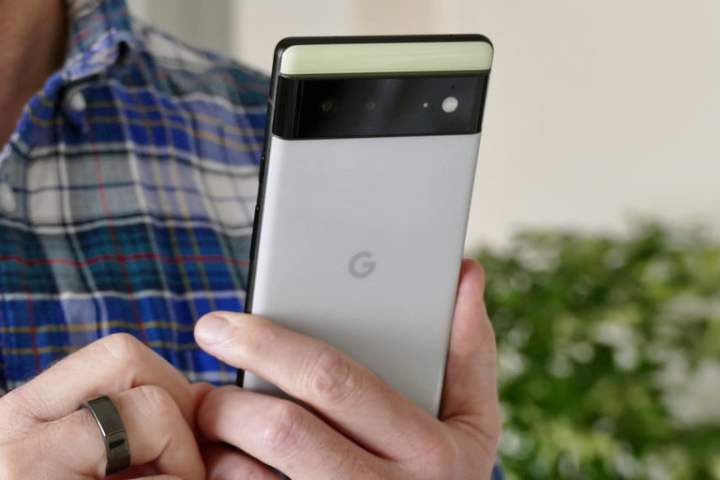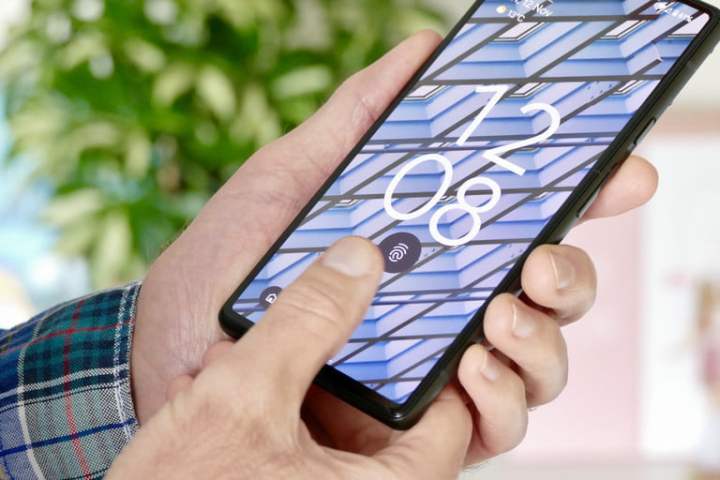When Samsung launched the Galaxy S20 FE in 2020 for $699, we thought it was among the best Android smartphones you could buy in its segment. Fast-forward to 2022, and the outlook seems radically different for its much-delayed successor, the Galaxy S21 FE. Unlike the case 16 months ago when there were no compelling “affordable flagships” to put up a fight against the S20 FE, customers looking to spend $500 to $800 on a smartphone today have a myriad of options to choose from.
With its $699 price tag, the Samsung Galaxy S21 FE inevitably locks horns with one of these options — the Google Pixel 6. With a starting price of $599, not only is the Pixel 6 a good $100 cheaper, it actually stacks up well against the S21 FE. We were impressed in our Pixel 6 review and awarded it a 4-star rating.
So, if you have between $500 and $800 to spend on a new smartphone and are on the fence when it comes to choosing between the Galaxy S21 FE and the Google Pixel 6, this article might just be the thing you need to arrive at an informed decision. Let’s dive right in and figure out which of these phones you should be spending your hard-earned money on!
Specs
| Samsung Galaxy S21 FE | Google Pixel 6 | |
| Size | 155.7 x 74.5 x 7.9mm (6.12 x 2.93 x 0.31 inches) | 158.6 x 74.8 x 8.9mm (6.29 x 2.93 x 0.41 inches) |
| Weight | 177 grams (6.24 ounces) | 207 grams (7.30 ounces) |
| Screen size | 6.4-inch Dynamic AMOLED 2X capacitive touchscreen (120Hz) | 6.4-inch OLED capacitive touchscreen (90Hz) |
| Screen resolution | 2400 x 1080 pixels (411 pixels per inch) | 2400 x 1080 pixels (411 pixels per inch) |
| Operating system | Android 12, One UI 4.0 | Android 12 |
| Storage | 128GB, 256GB | 128GB, 256GB |
| MicroSD card slot | No | No |
| Tap-to-pay services | Google Pay | Google Pay |
| Processor | Qualcomm Snapdragon 888 | Google Tensor, Titan M2 coprocessor |
| RAM | 6GB, 8GB | 8GB |
| Camera | 12-megapixel wide, 12MP ultra-wide, 8MP telephoto rear, 32MP front | 50-megapixel wide, 12MP ultra-wide, 8MP front |
| Video | 4K at 60 frames per second | 4K at 60 frames per second |
| Bluetooth version | Bluetooth 5.0 | Bluetooth 5.2 |
| Ports | USB-C, 3.1 | USB-C, 3.1 |
| Fingerprint sensor | Yes, in-display | Yes, in-display |
| Water resistance | IP68 | IP68 |
| Battery | 4,500mAh
Fast charging (25W) Fast wireless charging (15W) |
4,614mAh
Fast charging (30W) Fast wireless charging (21W) |
| App marketplace | Google Play Store | Google Play Store |
| Network Support | AT&T, Verizon | Verizon |
| Colors | Olive, Lavender, White, Graphite | Stormy Black, Sorta Seaform, Kinda Coral |
| Prices | $699+ | $599 |
| Review score | 3 out of 5 stars | 4 out of 5 stars |
Design, display, and durability
- 1. 1. Samsung Galaxy S21 FE
- 2. 2. Google Pixel 6
The Google Pixel 6’s design is a huge departure from last year’s Pixel devices — particularly when you get to the rear panel. The design changes made here have (generally) been well-liked by people across the board. The central design element here is the large, elevated camera strip that spans the entire width of the phone. Apart from providing visual relief to an otherwise uneventful rear panel, this design also happens to be somewhat functional in nature and lets you keep the Pixel 6 on flat surfaces without wobbling.
The Samsung Galaxy S21 makes no attempts at hiding its connection to the Galaxy S21 family. Again, this is evident from the rear camera module, which bears the now-famous Galaxy S21 series look. But that aside, there is nothing exciting going on here. Samsung does offer you four very good color options, but that’s just about exciting a polycarbonate rear panel could get.
The Google Pixel 6 scores easy brownie points over the Galaxy S21 FE and definitely looks more premium of the two. And this is primarily because of its glass-clad metal body. And if that wasn’t all, the Pixel 6 matches the S21 FE (well, almost!) when it comes to offering interesting color options.
If you’re fussy about phone sizes and were considering the Pixel 6 because it is a compact device, that’s actually a point in favor of the Galaxy S21 FE. Yes, surprising as it may seem, the Pixel 6 is slightly bigger, and at 207 grams, it is substantially heavier than the 179-gram Samsung. So, if compact phones are your thing, the Galaxy S21 FE is the one to go for here.
The Google Pixel 6’s 6.4-inch AMOLED panel is the same size as the Galaxy S21 FE’s. They share the same resolution numbers and have Gorilla Glass Victus’s improved scratch resistance and durability. But the Galaxy S21 surges ahead with a higher 120Hz refresh rate and 240Hz touch sampling rate, which is objectively better than the 90Hz, 144Hz sampling rate display on the Pixel 6 — especially if you play games.
Besides, the S21 FE also gets the supposedly superior AMOLED 2X panel compared to the Pixel 6’s standard OLED panel. Another screen-related similarity between the two is the presence of an under-display fingerprint scanner on both phones. However, initial reviews indicate that the S21 FE’s fingerprint unlock mechanism works flawlessly — quite unlike the one on the Pixel 6’s scanner that has been riddled with bugs since the phone’s release.
Both smartphones are evenly matched when it comes to ingress protection and durability, thanks to their IP68 rating. However, the Galaxy S21, because of its polycarbonate panel, is technically better equipped to take in an occasional fall without you needing to visit a service center for a cracked rear panel.
Even though the Galaxy S21 has several things going for it, we have to award this one to the Pixel 6, which feels better and is almost as good as the S21 FE in terms of other features, while also costing $100 less. Besides, some of the “issues” on the Pixel 6 can be sorted by a mere software update.
Winner: Google Pixel 6
Performance, battery life, and charging

The Samsung Galaxy S21 FE’s powerful Snapdragon 888 chip may not be the newest kid on the SoC block anymore, but it is still a beast of a performer. In terms of raw performance and benchmark scores, it easily leaves Google’s new Tensor chip behind.
But then benchmark scores don’t matter that much in real life. Besides, the so-called difference in performance between the two will only manifest in intensive tasks like gaming and heavy multitasking. For day-to-day tasks, Google’s Tensor chip — which is also a flagship-grade SoC — should be more than enough.
Google’s Tensor chip also gets a powerful A.I. and a machine learning-focused Tensor Processing Unit that should work well with Google’s existing and upcoming A.I.-centric initiatives ranging from computational photography and automatic speech recognition to an improved Google Assistant experience.
The Google Pixel 6 is physically larger than the Galaxy S21 FE and also boasts a slightly bigger battery. However, the difference in capacity is marginal, and we thought the 4,500mAh cell on the Samsung could hold up fairly well against the 4,614mAh battery on the Pixel 6. Unfortunately, the Galaxy S21 FE fell behind the Galaxy S20 FE and did not really impress us with its battery life. In our review, the S21 FE phone barely lasted a da,y with the battery percentage hovering in the mid-teens by sunset. This is in contrast to the Pixel 6, which almost always ended the day with around 60% battery left. Google also supports faster 30-watt fast charging — which on the Samsung is restricted to 25W. The Pixel 6 also gets faster (21W) wireless charging support compared to the S21 FE’s 15W.
With the Pixel 6 nearly as good as the S21 FE in terms of performance, while also offering better battery life, we have no qualms in awarding this one to the Pixel 6.
Winner: Google Pixel 6
Cameras

Google’s legendary photography prowess makes the Pixel 6 the clear favorite here. And this time around, Google has upped the ante with better hardware too. The Pixel 6’s 50-megapixel primary camera sensor manages to capture images that rival its more expensive sibling — the Pixel 6 Pro. While it misses out on a dedicated telephoto lens, it does retain the 12MP ultrawide camera, which also takes great shots.
The Samsung Galaxy S21 FE’s triple-camera setup looks good in isolation, but given that the Pixel 6 has the specs to give even the mighty Galaxy S21 a run for its money, this one will be an uphill battle for the S21 FE. In our review, we were quite happy with the Galaxy S21 FE’s camera performance. However, the overall feeling was that the Pixel 6 Pro easily wins this round.
Where the Samsung does excel, however, is the much-improved portrait mode and the fact that selfies from the 32MP front camera are as good as it gets. Then there are Samsung-specific features like Single Take and dual recording mode, which you will miss on the Pixel 6.
Despite all this, in our opinion, the Google Pixel 6 will be the obvious choice for anyone seeking the best camera phone under $700.
Winner: Google Pixel 6
Software and updates

One thing that every prospective Google Pixel buyer can be assured of is excellent software support and priority updates for the foreseeable future. Then there is the stock Android experience that some people swear by. Google’s camera software also has its own set of fans.
Samsung has also upped its software game, and both the phones in this comparison run Android 12. The company also promises three years of software updates and one additional year of security updates for most of its new devices — which means the Galaxy S21 FE will easily last you the next 2-4 years and will continue receiving relevant updates for a long time. Then there are features that you will only find on Samsung’s OneUI.
Honestly, both phones seem evenly matched in this segment, and you will need to pick one from the other based on your individual preference.
Winner: Tie
Special features

Even though stock Android has improved by leaps of late, it is still no match for Samsung’s OneUI when it comes to the sheer number of extra features and customization options.
The Samsung Galaxy S21 FE is the one to go for if features like Dex Mode, Samsung Pay, and Bixby Routines matter to you. Pixel’s stock Android almost looks lackluster in comparison. Samsung also offers many other good-to-have camera-centric features that we have talked about earlier in the camera section.
Even though this is another section where personal preferences matter a lot, we’ll have to award this one to Samsung just because it offers a bouquet of extra features over and above the ones already offered by Android 12.
Winner: Samsung Galaxy S21 FE
Price and availability
The Google Pixel 6 comes in two storage options: A base 128GB variant that costs $599 and a 256GB variant that will set you back by $699. The three color options include coral, seafoam, and black.
The Samsung Galaxy S21 FE went on sale starting January 11, 2022, and comes in two variants: A $699 6GB and 128GB option and a pricier ($769) 8GB and 256GB variant. The color options on offer here are white, graphite, olive, and lavender.
Overall winner: Google Pixel 6
Even though the Galaxy S21 FE is a great phone by itself, we increasingly found ourselves leaning toward the Google Pixel 6 in this comparison. And why not? The Pixel 6 has arguably the best camera on any smartphone in its price range, runs the latest and greatest Android version, and has very good, future-proof hardware to boot. In addition, the Pixel 6 is an overall better looker and even feels more premium though it costs $100 less!
That is not to say the Samsung Galaxy S21 FE doesn’t have its strengths. But most of these strengths matter to the most ardent of Samsung fans. The average smartphone user who may not have used a Samsung phone before can quite easily survive 2022 without having to use the Samsung-only features they may find on the Galaxy S21 FE.




